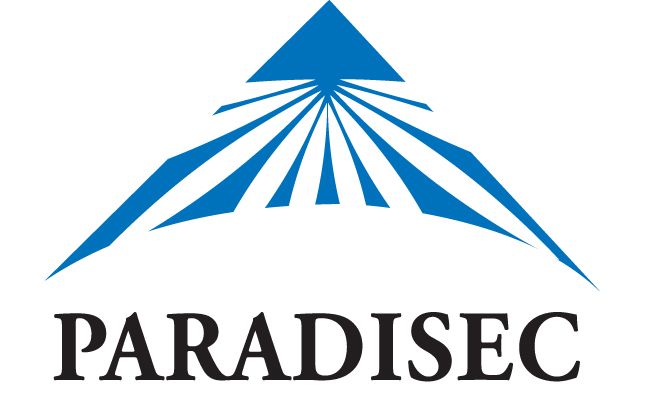Full description
This episode explores some of the earliest sound recordings made by ethnographic expeditions. The recordings are of songs that were sung in Hula village in the Rigo district of Central Province of British New Guinea - now known as Papua New Guinea. These songs were recorded on wax cylinder by Charles Gabriel Seligmann during the 1904 Daniels Ethnographical Expedition to British New Guinea and are now held in the collection of the British Library. We at PARADISEC are collaborating with the British Library and the Institute of Papua New Guinea Studies on a research project funded by the Leverhulme Trust. The project, called True Echoes, is working to reconnect living communities with these old recordings, to understand what they mean to people today, and what they tell us about the past and the present in Papua New Guinea. PARADISEC undertook participatory research with Deveni Temu, Roge and Gulea Kila who are Hula speakers in the Rigo District, Central Province and are part the PNG diaspora community in Canberra, ACT and Sydney, NSW. Discussions continued from Episode 10 about early recordings made by Charles Gabriel Seligmann during the Daniels Ethnographical Expedition to British New Guinea in 1904. Deveni Temu, a Hula speaker from Canberra, ACT is a retired librarian who worked in PNG, New Caledonia and Australia brings his perspective to the history and context of the recordings. Roge and Gulea Kila share musical responses to the 1904 recordings; a re-enactment of a Leku Leku song, and a stunning Ate Ate song of lament. All three guests express the value of archival recordings for descendants, connecting the past with contemporary relevance and contributing to cultural continuity. (AH & SG, True Echoes Project, September 2022). Language as given:
uri :
https://iso639-3.sil.org/code/bis
uri :
https://glottolog.org/glottolog?iso=bis
uri :
http://www.language-archives.org/language/bis
uri :
https://iso639-3.sil.org/code/eng
uri :
https://glottolog.org/glottolog?iso=eng
uri :
http://www.language-archives.org/language/eng
uri :
https://iso639-3.sil.org/code/hif
uri :
https://glottolog.org/glottolog?iso=hif
uri :
http://www.language-archives.org/language/hif
uri :
https://iso639-3.sil.org/code/hul
uri :
https://glottolog.org/glottolog?iso=hul
uri :
http://www.language-archives.org/language/hul
uri :
https://iso639-3.sil.org/code/kij
uri :
https://glottolog.org/glottolog?iso=kij
uri :
http://www.language-archives.org/language/kij
uri :
https://iso639-3.sil.org/code/ksd
uri :
https://glottolog.org/glottolog?iso=ksd
uri :
http://www.language-archives.org/language/ksd
uri :
https://iso639-3.sil.org/code/pix
uri :
https://glottolog.org/glottolog?iso=pix
uri :
http://www.language-archives.org/language/pix
uri :
https://iso639-3.sil.org/code/pma
uri :
https://glottolog.org/glottolog?iso=pma
uri :
http://www.language-archives.org/language/pma
uri :
https://iso639-3.sil.org/code/pui
uri :
https://glottolog.org/glottolog?iso=pui
uri :
http://www.language-archives.org/language/pui
uri :
https://iso639-3.sil.org/code/snc
uri :
https://glottolog.org/glottolog?iso=snc
uri :
http://www.language-archives.org/language/snc
uri :
https://iso639-3.sil.org/code/tpi
uri :
https://glottolog.org/glottolog?iso=tpi
uri :
http://www.language-archives.org/language/tpi
uri :
https://iso639-3.sil.org/code/zmr
Created: 2022-09-01
Data time period: 2022 to ,
ISO3166: AU
ISO3166: FJ
ISO3166: PG
ISO3166: SB
ISO3166: VU
- DOI : 10.26278/HMTN-FF43

- Local : TCT1-11
- URI : catalog.paradisec.org.au/repository/TCT1/11



